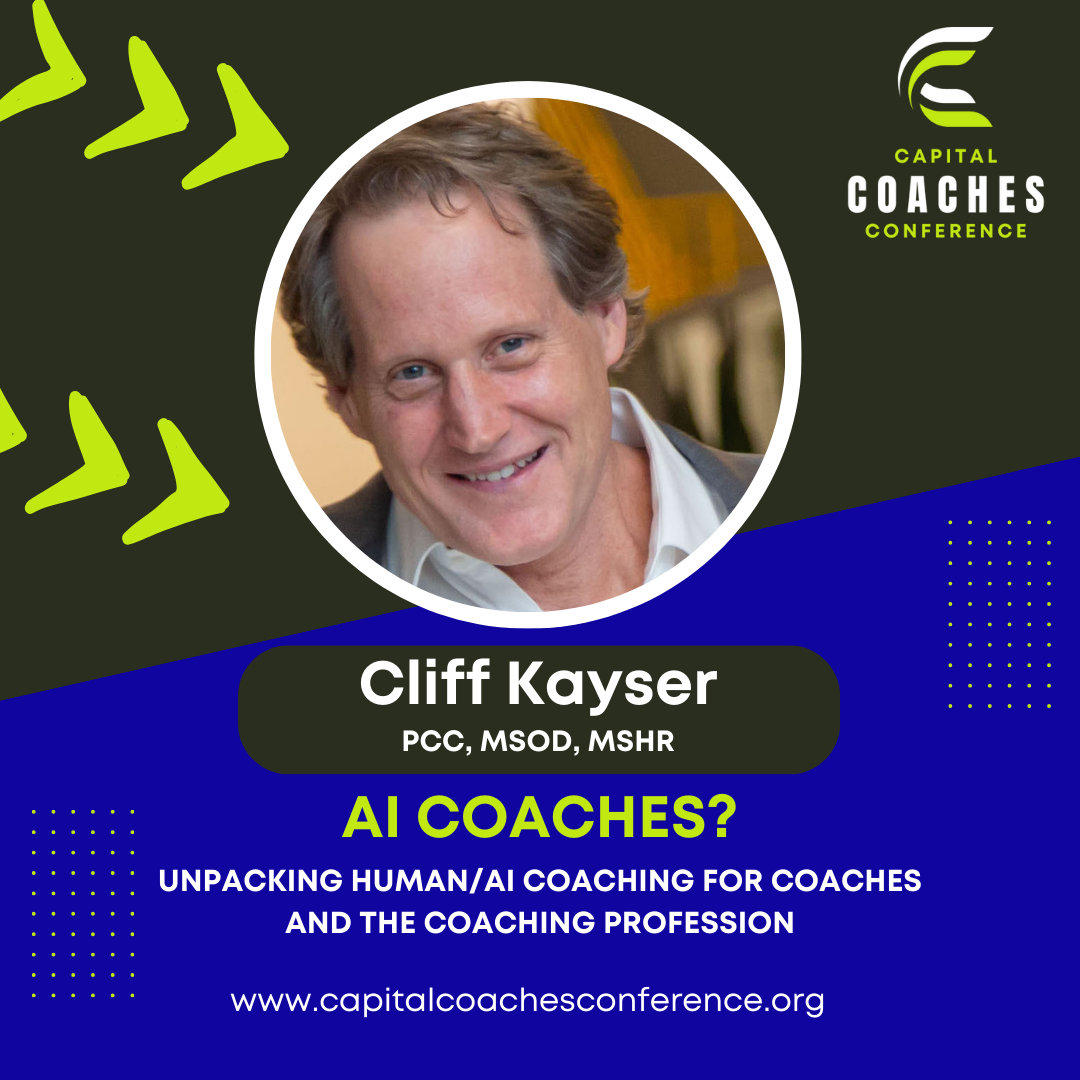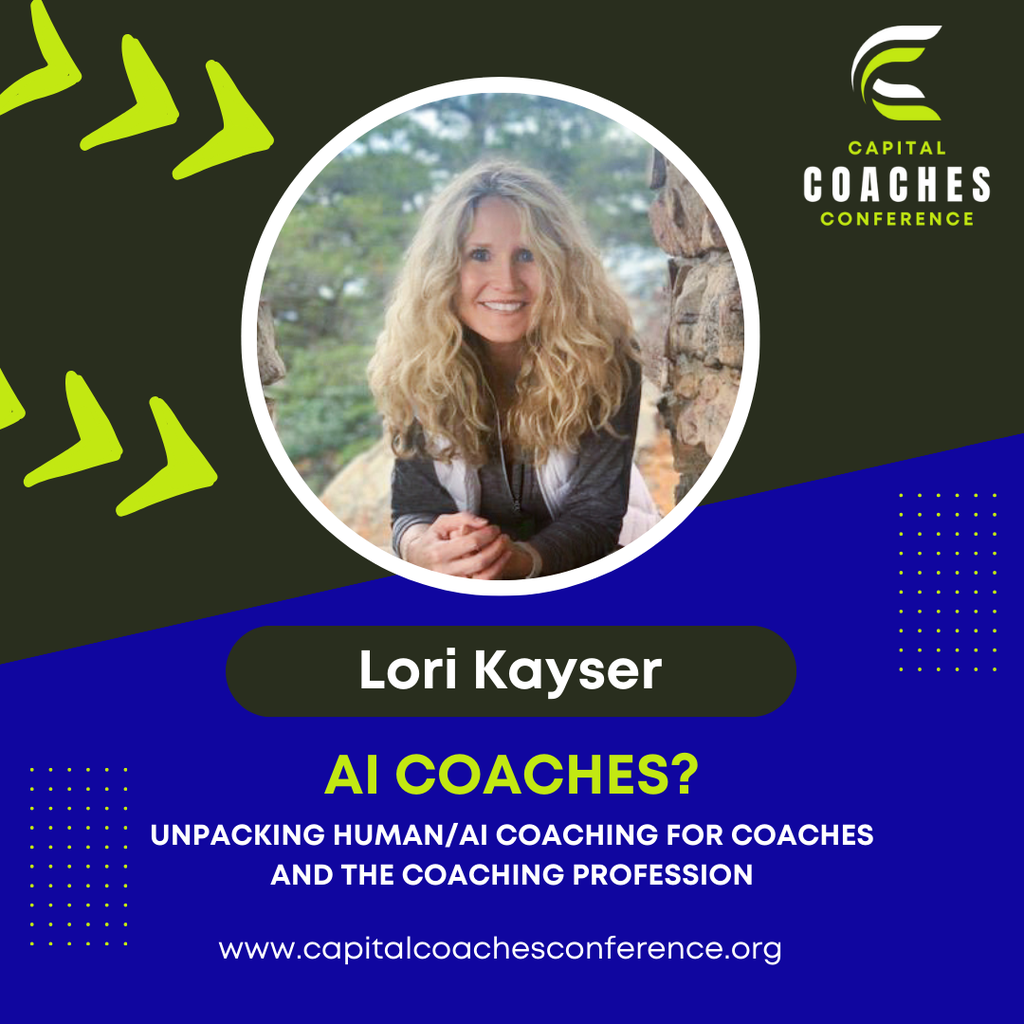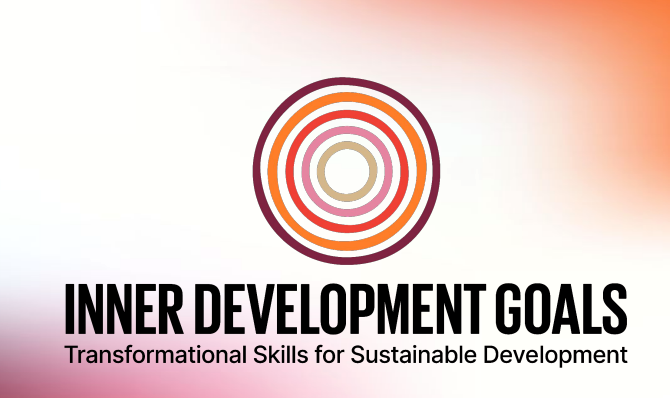On July 31st, I’m presenting at the Chesapeake Bay Organization Development Network Learning Series on the topic of “Technically Unsolvable Interdependencies.” A big focus of that presentation will be on most important and challenging interdependencies of our time – including the interdependency between technology and humanity. (This was also a topic I spoke on in a panel discussion for the International Coaching Federation last May.)
https://www.cbodn.org/event-5512968
In October 10-11th my sister Lori and I will present on the topic of AI and Coaching at the Capital Coaches Conference. (https://www.capitalcoachesconference.org/).
It’s becoming ever-clearer why in the next critical decade of development and deployment of this species-changing technological revolution, that Coaching, Team Coaching, and Organization Development must play a role. Everyone needs to put seatbelts on because the coming years promise the ride or our lifetimes – and all of those who follow us. In a discussion today, Lori described it as “our collective “Oppenheimer moment.” I believe she’s right — and the first step for those of us in the applied behavioral science-focused arena is educating ourselves about the challenges and opportunities so we can best support those in decision-making capacities to make conscious human decisions. Here’s the first of summary of an important source. (The next will be Dr. Fei-Fei Li’s “The World’s I See.” – I’m partway through that one.)
Introduction
“The Coming Wave” by Mustafa Suleyman delves into the rapid advancements in artificial intelligence (AI) and other emerging technologies, exploring their profound implications for society, politics, and the global economy. Suleyman, co-founder of DeepMind, provides a unique perspective on the potential benefits and dangers posed by these transformative technologies.
Thought-provoking doesn’t come close to describing this book and the transformative potential of AI and other emerging technologies. It gives a balanced perspective that highlights both the benefits and risks. I loved the call for ethical consideration — inclusivity and robust regulatory frameworks to navigate the future of this technology (MY TAKE – THIS IS A CRITICAL FOCUS AREA for Organization Development Practitioners and Executive Coaches). Society is literally on the brink of a new era and the insights in this book provide us with some backstory and beginnings of a roadmap from an expert in the field to harness the power to create a better and more equitable world.
(Or not…)
The Promise of AI
There’s discussion of the unprecedented potential of AI to solve some of the world’s most pressing problems (healthcare, climate change, and advancements based on AI’s ability to process vast amounts of data and make complex decisions). Imagine AI systems enhancing diagnostics, predicting climate patterns, optimizing resource usage, and improving agricultural productivity – all leading to a more efficient and effective society.
The Other Edge of the Sword
Also addressed is the darker side in which AI in combination with other emerging technologies (biotechnology and quantum computing) that possess the power to disrupt industries, economies, and the basic fabric of society. Here’s the bottom line: we (humanity) are at an inflection point that could either lead to unprecedented prosperity or exacerbate existing inequalities and create new forms of oppression.
[My take … be concerned – even a bit scared. That said, it’s possible to address if we start now and act effectively, efficiently, and collectively. However, given what’s happening politically in the US and generally with the rise of authoritarianism, globally – me scared.]
Ethical and Societal Challenges/Opportunities
Suleyman raises critical ethical questions regarding AI and technological advancements, such as:
- Potential for bias in AI systems (which can perpetuate and amplify existing social inequalities).
- Lack of diversity in the tech industry that can (is? Has?) lead to the creation of AI systems that don’t serve all segments of society.
- The concentration of power in the hands of a few large tech companies – that raises huge concerns about accountability and transparency.
Workforce Impact
Not surprisingly, a significant concern about AI is employment impact – displacing millions of jobs, particularly in sectors such as manufacturing, transportation, and customer service. How are leaders and society proactively addressing this challenge? The suggestion is to invest in education and retraining programs to prepare the workforce for the jobs of the future. If we don’t manage the transition carefully we could be looking at widespread unemployment and the social unrest that will follow.
The Geopolitics and Regulation’s Role
The race for technological supremacy is becoming a critical aspect of international relations, with major powers (United States and China) vying for dominance. Here’s where choice and trust come in (this is my take) – competition has the potential to lead to new forms of conflict and power struggles while collaborations and alliances (or more likely a combination of the two). Suleyman’s emphasis on the need for international cooperation and governance is needed to ensure that technological advancements benefit all of humanity and do not become tools of oppression or warfare. To mitigate the risks associated with AI and other emerging technologies, Suleyman advocates for robust regulatory frameworks. (Think about this – an entrepreneur begging for regulation of his industry…) He argues that governments, industry leaders, and civil society must collaborate to develop regulations that ensure the ethical use of technology while fostering innovation. Regulatory frameworks should address issues such as data privacy, algorithmic transparency, and accountability for AI-driven decisions. Suleyman also highlights the importance of global standards and cooperation to address the transnational nature of technological challenges.
Inclusivity
Inclusivity is a recurring theme in “The Coming Wave.” Suleyman emphasizes that the benefits of technological advancements must be distributed equitably across society. This requires conscious efforts to include diverse voices in the development and deployment of AI and other technologies. By ensuring that a wide range of perspectives are considered, society can create more equitable and effective technological solutions.
Future of Humanity
Reflecting on broader implications of technological progress for the future of humanity, the argument is — society must navigate the coming wave of technological change with wisdom and foresight. (HELLO! How will this happen??) By embracing the potential of AI and other technologies while addressing their risks, humanity can build a future that is both prosperous and just. The call is for a collective effort to harness the power of technology for the greater good, ensuring that the coming wave benefits all of humanity. (My take – this must/will happen mostly on a leader by leader and institution by institution basis…hopefully, with competent and compassionate support of Executive Coaches and Organization Development practitioners.)








